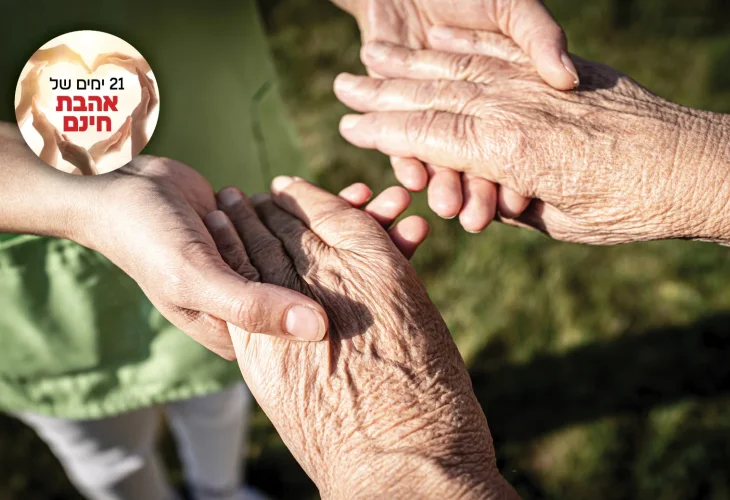Jewish Law
Honoring Parents: The Path to Great Reward in This World and the Next
Meaningful ways of showing gratitude and respect toward those who raised you
 (Photo: shutterstock)
(Photo: shutterstock)Daily Mitzvah: Honoring Parents
The mitzvah of honoring one's father and mother is one of the central mitzvot in the Torah, earning a place of honor among the Ten Commandments. Our Sages attribute tremendous importance to this mitzvah, with promised rewards in both this world and the world to come. This mitzvah expresses gratitude and recognition for parents' efforts and dedication.
As it is said: "If one has a father or mother, one should strive to attend to their needs, for it is a positive commandment from the Torah and one of the most serious obligations" (Jerusalem Talmud, beginning of Tractate Peah).
It is further stated: "A person must honor their father and mother and fear them, and must be very careful with their honor and reverence, as their honor and reverence is compared to the honor and reverence of Hashem. And their love is compared to the love of Hashem. One must love them with intense love, just as they loved him, and they should not be a burden to him. If a person does not honor his father and mother, harsh decrees come upon him. Since their honor is equated to the honor of Hashem, the punishment is also equal."
Several key aspects of honoring parents:
1. Honor in thought: A person should honor their father and mother in their heart, and consider them as great and honorable people – even if they are ordinary people. The "Chayei Adam" rules that the essence of the mitzvah is through according honor in thought.
2. Honor in action: A person should honor their parents with their body and possessions: feeding them, giving them to drink, clothing them, and fulfilling all their needs. Whatever one gives them should be given happily.
3. Reverence for parents: As stated in the Kitzur Shulchan Aruch: "What is reverence? One should not stand in their special place where they stand with elders and their companions, or in their place designated for prayer, and should not sit in their designated place at home, and should not contradict their words, and should not decide matters in their presence, even if one says, 'My father's words seem correct.'"
It is also stated: "How far does reverence for them extend? If the son was wearing fine clothes and sitting at the head of the congregation, and his father or mother came and tore his clothes, struck him on the head and spat in his face, he should not embarrass them or cause them pain or anger, but should remain silent and fear the King of Kings, Hashem, who commanded this. However, he may sue them for damages."
4. Honor in speech: One must speak to parents with respect and politeness. One should not call parents by their first names.
5. Honor after parents' death: It is ruled that one must honor parents even after their death. How? When mentioning the name of one's father or mother within 12 months of their passing, one should say: "I am an atonement for his/her resting place." One should also recite Kaddish for the elevation of their souls, which is also considered honoring them.
6. Standing in their presence: A person should stand up to one's "full height" before their father and mother. According to Jewish law, one only needs to stand twice a day - morning and evening. Another opinion is that one should stand in their honor every time they enter the room where their son is sitting, even 100 times a day.
However, many parents have waived this honor, and if they tell their child that they need not stand for them, the child is exempt. Nevertheless, it is very appropriate to do so and to honor them by rising from one's seat.
7. Young children: Even a young boy or girl who has not reached the age of mitzvot should be educated to properly honor their parents.

